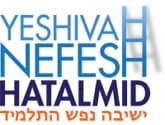Before Going down to Mitzraim, Yaakov stops in Beer Sheva to give Korbanos and speak with Hashem. Yaakov was very nervous about going down to galus, not only for himself but for what was waiting in store for his children and grandchildren, all he had worked for his entire life. Hashem reassures him that he will be with him. The Midrash asks did he specifically stop in Beer Sheva? The Midrash answers he was collecting cedar trees planted by Avraham to be taken down to Mitzraim and eventually used for the building of the Mishkan. Why take them now, so long before? Perhaps Yaakov wanted thes trees, planted by Avraham in the beginning and destined for a great cause to accompany them down as a reminder of who they are and what their eventual goal is.
Yeasr ago I remember reading somewhere that teens who know their own family history are more confident, successful, and avoid the usual “teen problems”. This can be explained from the fact that knowing your family history helps shape your identity. It gives you an origin, a place and a people to belong to. Feeling connected to the past struggles and successes of ancestors leads to appreciation and building upon that foundation. This was said about secular teens. We call this “Mesorah”. Mesorah is not just giving over the torah and halachos, the stories of our forefathers. We need to teach our children and students not as an abstract or practical subject or facts and history, we need to give them perspective and identity. Our words and actions need to exude that we feel the pulse of the torah just as earlier generations did, that it is an integral part of us, as a people and as an individual. We need to show that we feel appreciation and lucky to be chosen to be part of this family. Our “family tree” stems from the strong cedar trees Avraham planted, Yitzchak watered, and Yaakov carried to Mitzraim for us to cut and shape into a house of God. Our elders and ancestors planted the seeds, we need to pass the materials over to our children for them to build. As our children enter into the teenage version of “Galus Mitzraim” we need to remind ourselves of our mission to accompany them all the way, providing them the tools they will need when they finally emerge from their own personal geulah into adulthood to build their own homes, dedicated to Hashem. It is frightening, but we know Hashem is here with us as well, as are all the keilim we received from our parents and grandparents as well.
As a side note, I find this inyan especially difficult as an oleh, on the one hand connecting deeper with my heritage and ancestors, on the other separating myself from much of my close family and relatives. Of course this effects a child’s identity growing up and makes things confusing. Who are they? Did they choose this? It is even more crucial, then, to mashlim for our children their identities by giving them perspective and connecting them with history. Rov Soloveichik always underscores the importance of not just learning with your kids but also telling them stories. Kids in general are very curious about their grandparents and great grandparents stories (the pesach seder is the cornerstone of the Mesorah and is done through stories). We also have to model for our kids respecting elders. Moving away from their grandparents we might not have realized how much and often we had the opportunity to respect and be there for our parents and grandparents, which our children would have observed. We have to be careful when our parents/inlaws visit to show even more kavod and hakaros hatov, because those our opportunities to show our children how we want them to treat us.
Rabbi Ari Deutscher MSW
Menahel

Leave A Comment